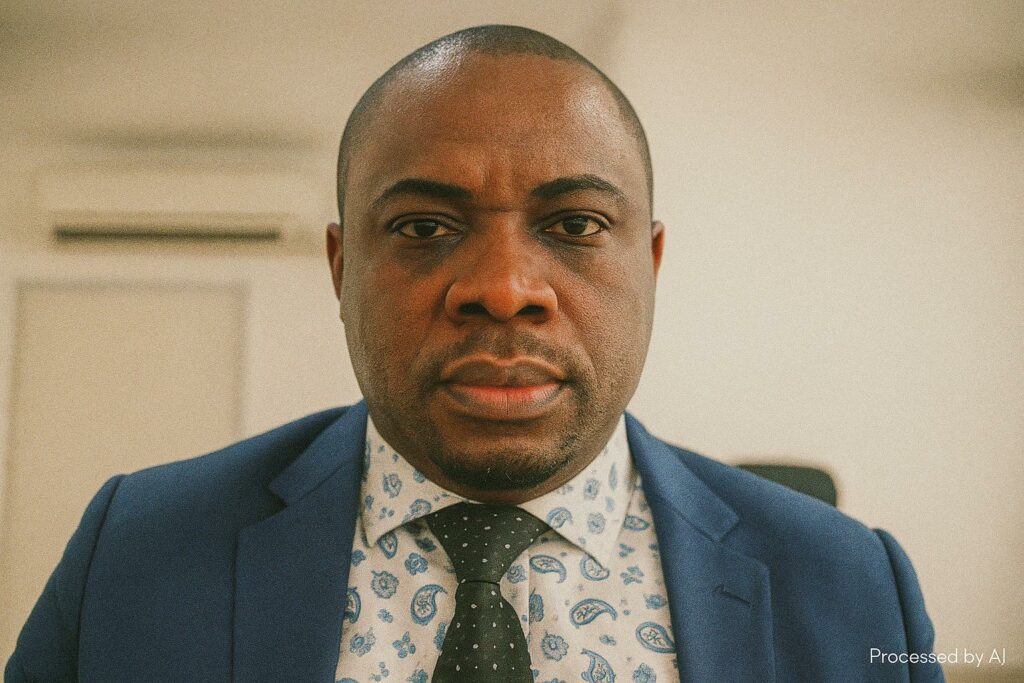Memory, Literature and Nationhood in Brazzaville
The sun-washed patios of the Maison Russe in Brazzaville rarely witness a silence as pregnant with expectation as on 26 July 2025. Writers, critics, students and a sprinkling of diplomats settled into polished wooden chairs for the inaugural Grand Atelier Littéraire, curated by the essayist and critic David Gomez Dimixson. Entitled “From Memory to the Future: Literature Building Bridges,” the gathering came at a propitious moment: the Republic of the Congo is refining its cultural diplomacy, and the written word figures prominently in that strategy (Agence Congolaise d’Information, 2024).
Seated in the first row, Professors Yvon-Pierre Ndongo Ibara, head of the National School of Administration and Magistracy, and Mukala Kadima Nzuji, the internationally acclaimed critic and editor, lent academic gravitas. Their presence subtly underlined an institutional conviction that literary debate belongs not only to university corridors but to the civic square, where narratives of the past and projections of the future merge into nation-building discourse.
The Custodians of Shared and Private Pasts
Prince Arnie Matoko—magistrate by training, novelist by vocation—opened the roundtable with an invocation of memory as a juridical as well as a poetic dossier. “Literature,” he argued, “is a tripartite instrument: it excavates the past, interrogates the present, and illumines the horizon ahead.” His cadence, steeped in courtroom rhetoric, framed authors as protectors of what he termed “the sacred temple of individual memory,” while also archiving the collective experience that textbooks often compress. Matoko’s latest volume, The Book of My Grandmother, aligns intimate family chronicles with national history, distilling a lineage of resilience that resonates with younger Congolese readers seeking bearings in a digitised era.
In a hallway conversation, Professor Kadima Nzuji elaborated that Matoko’s premises echo UNESCO’s 2017 report on intangible heritage, which urges African states to channel storytelling traditions into contemporary media. By codifying memory through fiction and essay, writers become unofficial archivists whose authority is moral rather than statutory, yet no less influential.
Polyphonic Voices and Generational Dialogue
Gomez Dimixson guided the audience through his own oeuvre, pausing on Redire les Mots Anciens, first published in 1977, and La Chorale des Mouches, released in 2003. Both texts, he remarked, attempt to “make yesterday audible in the syntax of tomorrow.” The phrase resonated when Dr Winner Franck Palmers, lecturer and critic, mapped the trajectory from Jean Malonga’s 1950s pastoral realism to Sony Labou Tansi’s volcanic modernism, underscoring a continuity of dissenting tenderness in Congolese letters.
Interventions from readers such as Maloula and novelist Isaac Itoua reminded the assembly that literature’s afterlife lies in reception as much as creation. Their tributes to Gomez Dimixson and Matoko served as anecdotal evidence of books circulating beyond scholarly circles, animating café debates and WhatsApp groups alike. Such testimony bolsters findings by the Centre National du Livre de Brazzaville, which recorded a 12 percent rise in domestic literary sales in 2024, particularly among readers aged 18-30.
Interarts Synergies Reinventing the Salon
A theatrical hush surrendered to performative energy when actor Fortuné Batéza delivered poems in a baritone that rippled across the parquet floor. Moments later, rap artists Jessy B., KB le Roi and gospel singer Darius M. wove rhythmic interludes between panels. Their presence demonstrated what cultural economist Pierre Besson calls the “horizontal diversification” of Congolese creative industries, wherein literature, music and theatre converge to court a trans-media audience (Revue Africaine de l’Économie Culturelle, 2023).
The Maison Russe itself—long a venue for diplomatic receptions—functioned as a symbolic pivot. By hosting a workshop that paired classical criticism with urban melodies, the institution illustrated a diplomatic axiom: cultural events can soften statecraft, projecting a plural national identity while remaining consonant with official narratives that emphasise peace and cohesion.
Prospects for Cultural Diplomacy and Soft Power
Looking beyond the applause, participants concurred that the Grand Atelier should evolve into an annual rendez-vous feeding directly into the policy pipeline. Professor Ndongo Ibara hinted that future editions might liaise with the Ministry of Foreign Affairs to showcase Congolese writing at Francophonie summits. Such alignment could reinforce the government’s 2023-2027 Cultural Strategy, which identifies the book sector as a vector for both economic diversification and soft-power leverage.
Brazzaville’s literary renaissance also holds implications for regional stability. By articulating nuanced memories of colonial entanglement, civil unrest and ecological stewardship, Congolese authors contribute to what scholar Achille Mbembe terms “the politics of conviviality,” a grammar of coexistence urgently needed in Central Africa. Meanwhile, private publishers and public institutions are experimenting with digital platforms to amplify rural voices, thereby decentralising the cultural narrative without jeopardising national unity.
As the lights dimmed on the first Grand Atelier, a palpable consensus emerged: literature is not a luxury appended to political life but a scaffold on which societies can negotiate modernity. That insight, echoed in the closing words of Gomez Dimixson—“Our pages are bridges; walk them wisely”—positions Congolese letters as an indispensable instrument for shaping both memory and destiny.

